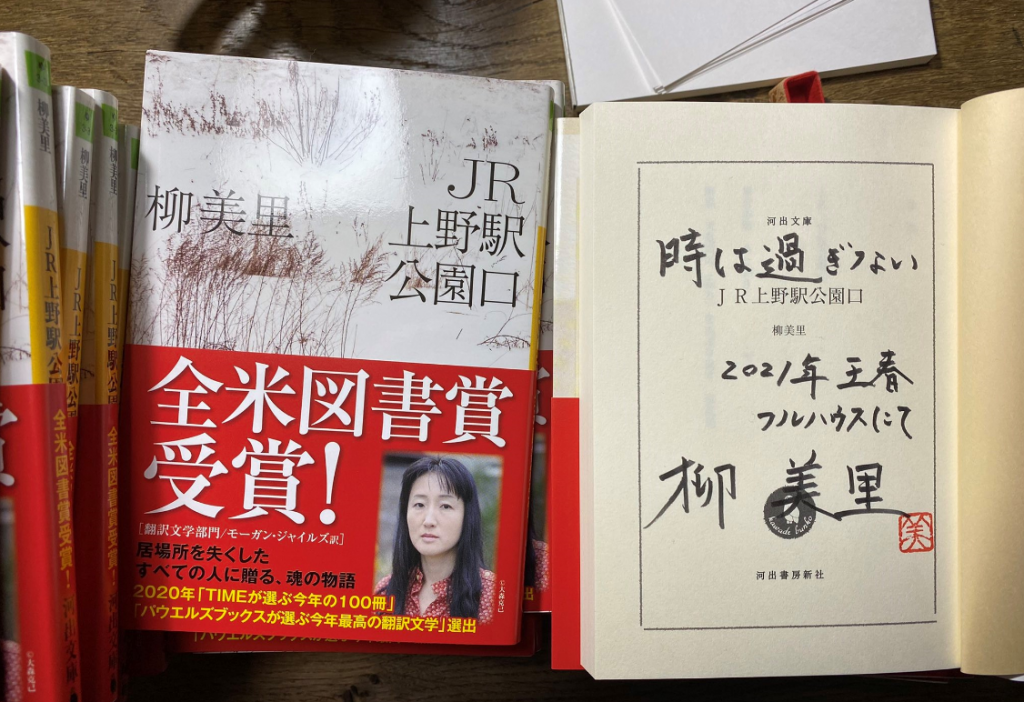
- ARAB NEWS
- 01 Jul 2025

TOKYO: The memory of the major natural disaster that struck northeastern Japan 10 years ago and the subsequent nuclear crisis have given birth to many literary works, including a novel that won the US National Book Award for Translated Literature.
“Tokyo Ueno Station” by Miri Yu was created from the author’s experience of repeatedly visiting Fukushima Prefecture, one of the three prefectures hit hardest by the 9.0-magnitude earthquake on March 11, 2011, and huge tsunami unleashed by the temblor, and also home to Tokyo Electric Power Company Holdings Inc.’s Fukushima No. 1 nuclear power plant, where an unprecedented triple reactor meltdown occurred.
On April 21, 2011, Yu traveled to Fukushima from her home in the city of Kamakura, Kanagawa Prefecture, south of Tokyo, after hearing that people would be barred from entering within a 20-kilometer radius of the crippled nuclear plant.
The news reminded her of Lake Tadami in a mountainous area in the prefecture, which she visited with her mother when she was a child. Yu’s mother, who spent her adolescent years in the town of Tadami, repeatedly told Yu about the community that used to be located at what is now the bottom of the manmade lake. “I learned about the sorrows of people who had to leave their homes due to a dam being built,” she said. “I thought that while I can’t walk the bottom of the lake, I can still enter the 20-kilometer area.”
After visiting Fukushima multiple times, she was contacted by a temporary FM radio station set up for disaster news in the city of Minamisoma in Fukushima. Yu then became the host of a radio program from March 2012 in which she talked with two locals. Yu, who moved to Minamisoma three years later, talked with some 600 people on her program until the radio station was closed in March 2018.
In listening to the stories of the guests, Yu learned that many had experience of traveling to find work. Some of the guests told her that they had to evacuate due to the nuclear accident soon after they returned to their hometowns.
In Yu’s mind, the guests’ stories overlapped with those of homeless people living in Tokyo’s Ueno Park whom she had been interviewing from before the disaster.
“Some people reflected on their lives saying that they had no luck,” she said. “It makes me wonder what luck is.”
She used her experience to pen a novel superimposing the lives of people with no place to return to after traveling for work over the lives of those who evacuated from the nuclear meltdown.
Yu said that people in Minamisoma were happy for the novel, with some exclaiming that it was “our community’s story.”
A large portion of the author’s home is open to the public as a book cafe and a workshop for stage plays. The cafe employs local high school students with whom Yu worked for the school’s drama club, and she says she hopes to someday hand the place over to them.
Yu hopes that the book cafe can become a place like a small bookshop on the outskirts of London that she visited before. The bookstore was set up in an old cargo container, and it led to restaurants and other stores popping up nearby in what used to be a dangerous area.
“Although there are limits to what I can do, I hope to sow the seeds of culture and art, and that may lead to the spread of something,” Yu said.
JIJI Press